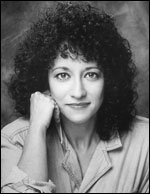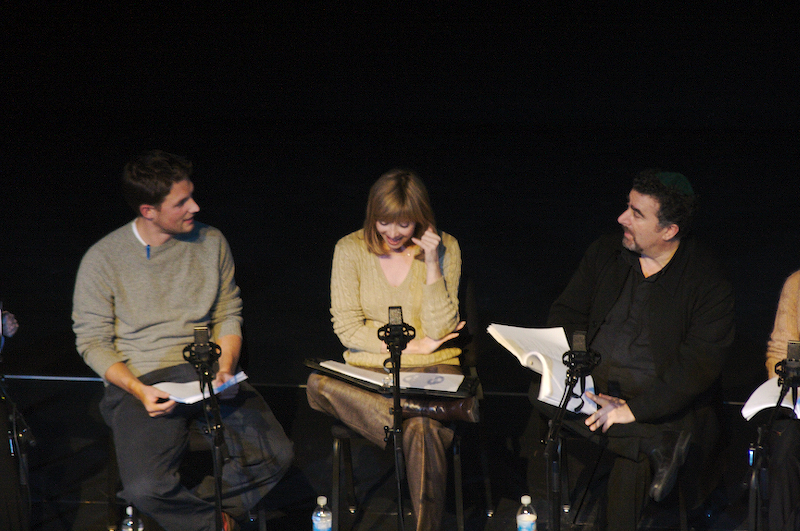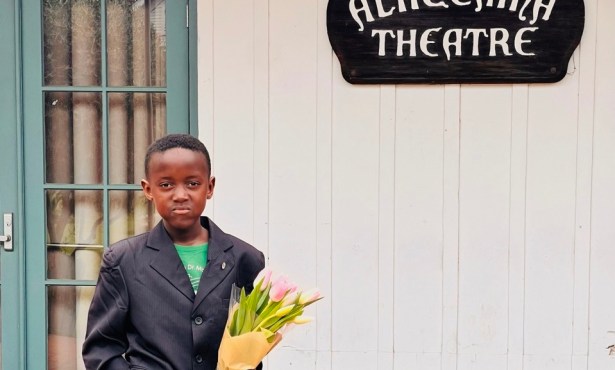Third Annual Playwriting Competition Puts Science on the Stage
UCSB's Professional Artists Lab and NanoSystems Institute Co-Sponsor STAGE
For the third year in a row, science meets the theatrical stage courtesy of UCSB, where the Professional Artists Lab and NanoSystems Institute co-sponsor an annual playwriting competition for scripts that explore scientific or technological themes. Called STAGE, which stands for “Scientists, Technologists, and Artists Generating Exploration,” and run by Nancy Kawalek, the competition is already an international success in just its third year.

The contest, which awards a $10,000 prize and priceless national exposure, is rooted in the Professional Artists Lab, which Kawalek founded after speaking with a scientist who told her that most Nobel Prizes were the results of accidents in the laboratory – essentially, that great discoveries originated in mistakes or outright failures. “It got me thinking,” said Kawalek, who comes from the New York theater world. “We don’t really do that in the arts anymore because of commercial concerns. You used to be able to experiment like that off-Broadway or in regional theater, but most theaters are just trying to survive. But we need a place like that in the arts where we can try great work and fail horribly.” So Kawalek founded the lab, and from that, turned her attention to her background: theater.
“I’m still very excited by theater, but I see a lot of theater,” said Kawalek, “and a lot of it is pretty bad, and it has nothing to do with our lives. Yet we’re living these incredibly technological lives, and we’re influenced by science and technology at every second.” In thinking about how to keep theater relevant for this and future generations, Kawalek realized a natural connection in the sciences. She thought that “a way to revitalize and look toward the future of theater is to have a forum in which more theater deals with our real, up-to-the-minute lives. Science and technology will keep theater vital and interesting,” she explained, asking, “What’s gonna make a 15-year-old go to the theater? There’s not a reason unless it somehow connects.”
From there, she got the right financial backing -anonymous donors, at that – and put up the $10,000 prize for the competition. Additionally, Kawalek enrolled some pretty prestigious judges, including Nobel Prize winners from the science side of things and prominent directors and playwrights from the theater world. “It’s only the third year,” explained Kawalek, “but the quality of submissions has increased dramatically.” The judging is done blindly, but writers are checked later, and have included very established playwrights and even Nobel laureates. “He didn’t win,” said Kawalek of the unnamed Nobelist, “but you can’t be good at everything.” One submission even came from as far as Nigeria last year.

In addition to the substantial cash prize, the winning playwrights eventually see their words hit the stage. The first year’s winner Jamie Pachino read Splitting Infinity at Los Angeles’ REDCAT Theater, in the Walt Disney Concert Hall, with the help of television actors from NYPD Blue, The OC, and Frasier. It was then produced at regional theaters. Last year’s winner, Elyse Singer, will be celebrating the world premiere of Frequency Hopping, at 3LD, or Three Legged Dog, a theater in New York City, in June 2008.
But while playwrights get the accolades, it’s the scientists who look forward to the event most, as many of them aren’t good about getting the word out about their discoveries to a wide audience. “Remarkably, scientists are usually more excited about the STAGE competition than artists,” Kawalek explained. “They think, ‘Oh my god! This is great. Someone can explain what we do and people will be excited by it.'” As well, STAGE has developed the relationships for scientists to inspire playwrights with their ideas, and even play a role in perfecting the production of plays. “This dialogue has been incredibly useful,” said Kawalek.
And production of technologically savvy plays is where Kawalek’s program is moving. She explained, “Now we’re taking the next step and we’re actually going to be creating our own multimedia theater pieces about science and technology.” She sees many multimedia-meets-theater productions as “sort of plastered on – like special effects, where everyone goes, ‘Oh, cool, wow,’ but that’s about it.” Kawalek continued, “We want to create pieces where the media is so incredibly integrated into the storytelling that if you took away the media, there would be no story. If you took away the actors and the dialogue, there would be no story. They have to go together.”
She’s aware of what the public thinks when they hear the words “experimental theater.” For most playgoers, Kawalek says, it brings to mind “people smearing peanut butter all over themselves onstage.” But, she promised, “I’m not talking about that. I’m talking about really good stories about the lives we’re really living.” And those lives are inherently interesting, she believes, due to the pervasive influence of world-sculpting technology.
“This is pretty ambitious and perhaps, very possibly, we’ll have those terrible failure moments, like Nobel scientists in the lab,” said Kawalek. “But I’m hoping we’ll also come up with some creative work.”
Perhaps they’ll even make theater relevant for the 21st century while they’re at it.
For details on how to enter by the December 31 deadline, see cnsi.ucsb.edu/stage.



